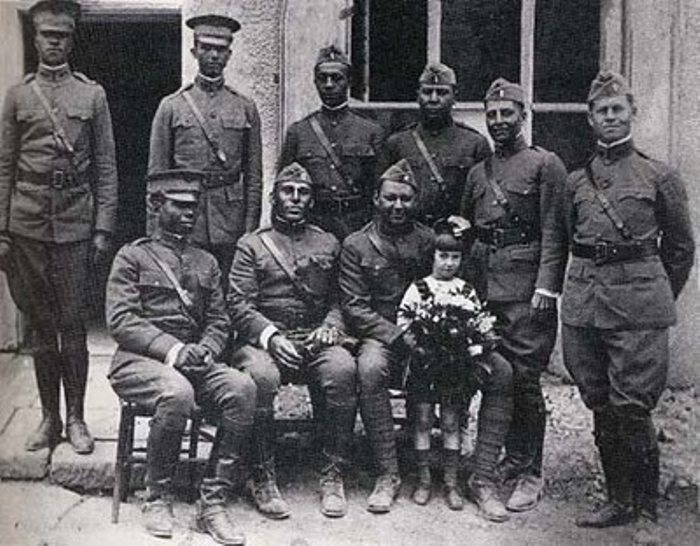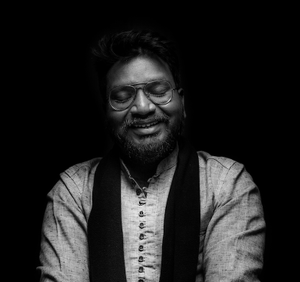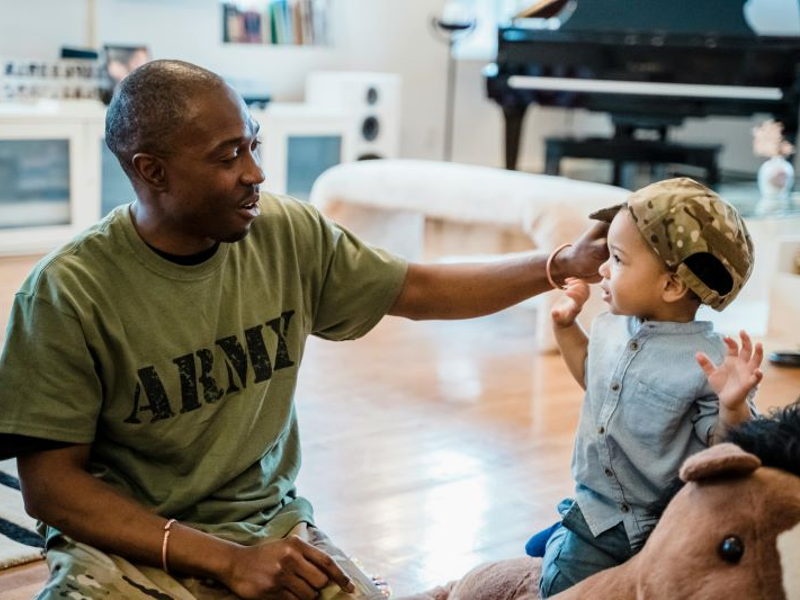Photo by George Pak
“FOR MORE THAN 200 YEARS, AFRICAN AMERICANS HAVE PARTICIPATED IN EVERY CONFLICT IN UNITED STATES HISTORY. THEY HAVE NOT ONLY BRAVELY FOUGHT THE COMMON ENEMIES OF THE UNITED STATES BUT HAVE ALSO HAD TO CONFRONT THE INDIVIDUAL AND INSTITUTIONAL RACISM OF THEIR COUNTRYMEN.”
— Retired Lt. Col. Michael Lee Lanning, author of “The African-American Soldier: From Crispus Attucks to Colin Powell.”

Source – Amazon
Black soldiers have bravely and distinguishably served in America’s armed forces throughout the country’s history, from the Battle of Lexington to the Battle of Fallujah. It is impossible to tell the story of the Army without including the historical accomplishments of Black Americans and keeping their memories alive. Black Americans have more than 245 years of distinguished service under their belts, having fought and sacrificed in every war in the history of our country. Serving the United States has allowed Black Americans, who have protected our country since the Revolutionary War, to leave a record of bravery and expertise.
Throughout American history, there has been a national military presence. As part of our shared culture, we are familiar with historical events relating to Bunker Hill, the Civil War, World Wars I and II, Korea, Vietnam, Grenada, the Gulf War, and the Global War on Terror in Afghanistan and Iraq. It is less generally known how the families of the troops who serve in these conflicts, particularly Black families, manage to be a part of their common military culture.

Source – Freepik
The Invisible Impact:
Sacrifices made at home: Black military families face unique challenges that profoundly, yet often unseen, impact their lives. Here’s a closer look at some of these sacrifices:
- Frequent deployments and the emotional strain on families: The very nature of military service involves deployments, separating spouses and parents from their loved ones for extended periods. This separation creates emotional strain for everyone involved. Spouses may experience loneliness, anxiety, and increased stress managing the household alone. Children can struggle with feelings of abandonment, fear for their parent’s safety, and difficulty maintaining positive relationships with a frequently absent parent.
- Spouses taking on additional responsibilities: When a service member deploys, the remaining spouse often takes on a significantly increased workload. This can include managing finances, childcare duties (possibly for multiple children), household chores, and additional work hours to maintain financial stability. This extra burden can lead to exhaustion, isolation, and difficulty maintaining a healthy work-life balance.
- Children raised in a state of uncertainty and potential danger: Military families often live with a constant undercurrent of uncertainty. Deployments can be unpredictable, and the possibility of a parent being injured or killed in action creates a significant source of anxiety for children. Additionally, frequent relocations can disrupt friendships and school routines and develop a sense of instability for children.
- Educational disruptions due to relocations: Military families relocate frequently, often in the middle of the school year. This can disrupt a child’s education, making it challenging to keep up with coursework and build relationships with teachers and classmates. Standardized testing can be complicated for children who must adjust to new schools and learning environments multiple times throughout their education.

Source- Flickr
Contributions Beyond the Service Member: The Unsung Strength of Black Military Families
Military families are often seen as an extension of the service member. However, Black military families bring unique and invaluable contributions extending far beyond the service. Here’s a deeper look at some of these often unseen yet critical contributions:
- Strong support networks for other military families: Black military families often create strong and vibrant community support networks. This is especially important due to the frequent relocations that come with military life. These networks offer:
- Shared experiences: Black families can understand the unique challenges faced by other military families, particularly those of color, due to shared experiences with racial dynamics within the military.
- Emotional support: Spouses can offer each other emotional support during deployments, helping one another cope with stress and anxiety.
- Practical assistance: Families can assist each other with childcare, errands, or a listening ear during difficult times.
- Cultural connection: These networks provide a sense of belonging and cultural connection, especially for families stationed in areas with limited Black communities.
- Cultural enrichment within the military community: Black families bring a rich tapestry of cultural experiences and traditions to the broader military community. This enrichment can include:
- Food and celebrations: Black families share their culinary traditions through potlucks and gatherings, introducing others to delicious and culturally significant dishes. They can also share holidays and celebrations specific to Black culture, fostering a more inclusive and diverse community.
- Music and art: Black families often contribute to the cultural life of the military base through participation in choirs, gospel groups, or artistic expressions like dance or visual arts. This exposure broadens the horizons of others in the community and fosters appreciation for Black cultural richness.
- Historical perspective: Black families often carry a legacy of service and perseverance that can inspire others. Sharing stories and experiences can help educate the broader community about the historical contributions of Black Americans to the military.
- Fostering resilience and adaptability in future generations: Black military families are forced to adapt and overcome challenges regularly. This constant state of change fosters resilience and adaptability in future generations. Children raised in military families learn to:
- Build strong relationships quickly: Frequent relocations make them adept at forming new friendships and adjusting to new environments.
- Embrace change: They learn to be flexible and adaptable, a valuable skill in today’s ever-changing world.
- Develop independence: Military spouses often take on significant responsibilities, which can teach children to be independent and resourceful.
- Appreciate diversity: Exposure to different cultures and communities fosters a sense of global citizenship and appreciation for diversity.
Black military families are the invisible backbone of the US Armed Forces. They shoulder a unique set of burdens, enduring the emotional strain of deployments and managing disruptions caused by relocations. Yet, they contribute immensely to the strength and success of the military community.
Their impact is multifaceted and profound:
- Strength and resilience: Black families persevere through challenges, fostering adaptability and a strong work ethic in future generations.
- Support networks: They create vibrant communities that offer invaluable emotional and practical support to fellow military families.
- Cultural enrichment: They bring a rich tapestry of traditions and experiences, fostering a more diverse and inclusive military culture.
Despite their invaluable contributions, Black families can sometimes face additional challenges due to racial dynamics within the military. Recognizing and addressing these issues is crucial for ensuring their well-being and maximizing their potential.
This is a call to action:
- Support programs: Increase access to resources and support programs tailored to the specific needs of Black military families.
- Advocacy: Advocate for policies that promote racial equality and inclusion within the military.
- Celebrating excellence: Celebrate the contributions and achievements of Black service members and their families.
By recognizing the sacrifices and contributions of Black military families and by actively supporting them, we strengthen not only the fabric of the military community but also the future of the nation’s defense. Let us celebrate their enduring strength and ensure they have the necessary resources to thrive.

Anand Subramanian is a freelance photographer and content writer based out of Tamil Nadu, India. Having a background in Engineering always made him curious about life on the other side of the spectrum. He leapt forward towards the Photography life and never looked back. Specializing in Documentary and Portrait photography gave him an up-close and personal view into the complexities of human beings and those experiences helped him branch out from visual to words. Today he is mentoring passionate photographers and writing about the different dimensions of the art world.





